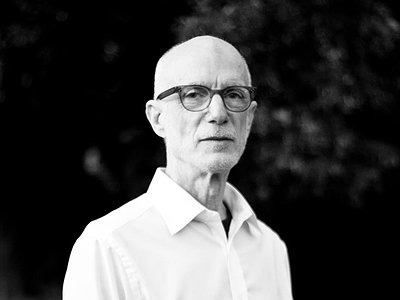What, if anything, do you personally draw from the cosmos of electronic music and digital production tools that is inspiring for your daily practice? In how far do you see the potential for a mutual creative pollination between the two?
I have almost no connection with either of these worlds although I have owned and played quite a number of synthesizers over the years. Regarding digital production tools I am a savage other than the software Sibelius. I have very mixed feelings about the digital world in general and would hesitate to say that the net worth of it has been positive for music and its listeners.
How do you see the relationship between timbre and composition?
This is an area where I feel most acutely my lack of formal education. Timbre is critical in the determination of which instruments are selected in the process of orchestration. I am certain that there are individual instruments, instrumental combinations and techniques that I am unaware of and consequently unable to utilize. I am constrained by this lack of knowledge to rely upon my very basic instincts when orchestrating. The lack of knowledge could also be viewed as beneficial, in that I tend to place instruments in their most basic and useful registers. It is my experience that instruments played within their basic range and in an ordinary manner have a richness that is satisfying. This also goes back to my experience with the bass which is frequently played and exploited so as to sound like another instrument which I find maddening at best.
Time is a variable only seldom discussed within the context of contemporary composition. Can you tell me a bit about your perspective on time in relation to a composition and what role it plays in your work?
Time is of monumental importance in my work and I spend quite a bit of energy and focus on the amount of time that elapses between sounds and in the decay of a chord or note. Time is the thread which must be managed to carry the listener from beginning to concluding note. I am always conscious of how long a piece feels. I frequently remark to my wife that the time went by quickly or slowly. The piece ‘Leaves’ on the Threads of a Prayer CD makes me happy, as the time passes quite smoothly especially for a piece of its length with only five instruments. Usually when the time or pace lags, it is a cue that there is an issue with the structure or pacing. Because I do not use very many rhythmic features in the construction of my work, the passing of time takes the place of tempo and, in a sense, groove.
What do improvisation and composition mean to you and what, to you, are their respective merits?
Composition provides a clearly defined blueprint of what the musicians are going to execute in the performance of the music. Improvisation is the instinct of creation based upon training and the capacity to use an instrument to relate an emotional, spiritual, or physical experience to a third party including themselves, the audience, or other improvisers.
Composition allows the originator of the material to carefully craft an outcome or result without needing to rely on the inspiration or motivation of the performer. This is perhaps overstating the case; however it would assume competent, conscientious performers. The difficulty is that composition does not allow necessarily for the implementing of the skill and experience of the performer. It is strictly a mono-vision. Improvisation on the other hand is always a risky endeavor as it frequently provides a platform for the full expression of an egocentric nature. Very few musicians can improvise with enough generosity to interest anyone other than themselves or an audience enamored of technical ability. A display of technical ability should not and does not to my mind qualify as improvisation. What is really difficult is to combine composition and improvisation. I am not sure why, as it should be a very natural process. The very best jazz manages this.
Do you feel it important that an audience is able to deduct the processes and ideas behind a work purely on the basis of the music? If so, how do you make them transparent?
This is a question of what kind of work is being presented. Obviously if you are presenting a dramatic work including lyrics you would want the audience to be involved in the story. In any other circumstance, I cannot conceive of why I would want the listener to be distracted by or interested in the process by which I made the work. Although I am paraphrasing, Hemingway said talking about the work too much took away its vitality. Everyone should derive from the work something of their own. In the best work the process is collaborative with the audience bringing their own feeling into the perception. This is the most irksome thing about a great deal of modern culture be it pop or otherwise. It is the amateurish way the makers seem determined to inform the recipient what the content of the work is about. It is a completely and utterly disrespectful, demeaning act all the way around. There has to be a trust between the artist and audience that allows for the audience to draw upon their own perceptions to understand and react to the work presented. Frankly, I use the word God in some of my work and that should make it pretty clear where I am trying to take you. However, if you put the music on to take a bath and relax, so be it, as there is a godly element to all things.




